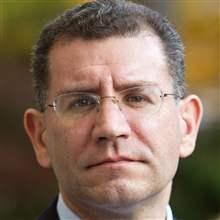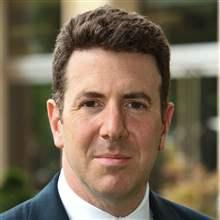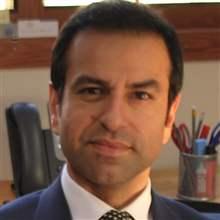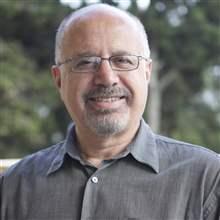In the wake of continuing chaos in Yemen, and the decision of a ten-country coalition—led by Saudi Arabia—to conduct airstrikes against Houthi fighters in Yemen, Brookings experts had a candid dialogue about the developing situation. Below is an edited version of that conversation.

Tamara Cofman Wittes, Senior Fellow and Director, Center for Middle East Policy, Foreign Policy program:
By the way, Bruce, didn’t we have a conversation just recently about the prospect of Egypt providing an expeditionary force for the GCC states? It feels momentous for the trajectory of the region. Some questions:
|

Bruce Riedel, Senior Fellow, Center for Middle East Policy and Center for 21st Century Security and Intelligence and Director, Intelligence Project, Foreign Policy program: |

Kenneth Pollack, Senior Fellow, Center for Middle East Policy, Foreign Policy program: |

Bruce Riedel: |

Tamara Cofman Wittes: I really wonder how AQAP plays this. Saudi intervention seems like a golden opportunity for them. |

Daniel L. Byman, Senior Fellow and Director of Research, Center for Middle East Policy, Foreign Policy program : |

Salman Shaikh, Fellow, Director, Brookings Doha Center and Fellow, Center for Middle East Policy, Foreign Policy program: I also wonder how secure is Saudi Arabia? Houthis may carry out their threats to attack Saudi. If this carries on, we must keep an eye on dissent within Saudi. Neither do I rule out Sunnis dissent within Iran’s western regions. There have been signs of that recently. Saudi, I was told, is looking to build a very broad regional coalition to counter Iranian expansionism, which includes Pakistan, Turkey, and Egypt. I also see that 10 countries have pledged support to the Saudis for Yemen, including Jordan, Sudan, Morocco, in addition to Egypt and Pakistan. The Saudis will have to pay for them all. The Yemeni conflict is now clearly part of a broader regional conflagration. For that reason there is an urgent need to plug the Syrian volcano. Renewed focus on a Syrian a Syrian political transition can contribute to de-escalating regional tensions. |

Suzanne Maloney, Senior Fellow, Center for Middle East Policy, Foreign Policy program: As for the United States, I don’t know of an American administration that has been anything other than reactive vis-à-vis Yemen. Unfortunately (especially for Yemenis) I think Yemen will simply never rise to the level of a priority that commands proactive American intercession—except if the threat of AQAP is resurgent, which of course may be an inadvertent outcome of the GCC strikes. My guess is that the Obama administration sees a net benefit in enabling the Saudis to flex their muscles on an issue which is existential, or close to it, for Riyadh but relatively low-priority for the rest of the world. Heck, Washington may have even encouraged this outcome: let the Gulf vent its spleen about the cozy conversations between Secretary John Kerry and Foreign Minister Mohammad Javad Zarif in an arena where they cannot do much additional harm to core United States interests in the region. Meanwhile, the nuclear talks will go on—even if the Iranians can’t close the deal—and Washington will focus its energies on IS and Iraq, in parallel to Iran’s campaign there. In my view, the real problem is that Saudi interventions across the region—military and financial—are no less forceful than those of Iran, and they are not inherently stabilizing, except perhaps in the short run. I can’t yet puzzle out how this is likely to impact the Iranian nuclear talks. I’m tempted to say not at all; the negotiations are really silo-ed on both sides, and if they can finally get to a credible formula, I think that producing a somewhat general, possibly unwritten “political framework” is not a terribly high hurdle. There would still be plenty of time for this to crash and burn before June 30th. On the other hand, the Iranian leadership sees the nuclear issue as firmly enmeshed within a broader web of United States efforts to undermine the regime, and it seems conceivable that the United States-sanctified Saudi attack on an Iranian client/ally — undertaken at the precise moment that Qods Force commander Qassem Soleimani had to yield the Tikrit battle to United States air strikes would intensify Iranian supreme leader Ali Khamenei’s hesitation about accepting a deal that the hard-liners in his security bureaucracy will see as a capitulation to the West. |

Shibley Telhami, Nonresident Senior Fellow, Center for Middle East Policy, Project on U.S. Relations with the Islamic World, Foreign Policy program: The Iranian issue will become more prominent, although I doubt Iran will do any more than provide some backing from the outside in the early stages. But it sets up a tone in the Saudi-Iranian competition that will have impact elsewhere. The Saudis may also feel that they need to start showing that they are a serious military player; despite investing tens of billions on arms, few people in the region take their power seriously and many wonder what they have done with these resources. They may feel this is an opportunity to register their arrival— but if they are seen to fail, they stand to lose a great deal. As far as the Egyptian role, it is already generating a heated discussion among Egyptian commentators, for and against, with comparison to Egypt’s intervention in the 1960s. |

Bruce Riedel: Aircraft from Kuwait, Bahrain, Qatar, UAE, Sudan, Morocco and Jordan are part of the air coalition with RSAF. Absent are Pakistan and Egypt so far. Saudi sources are adamant they don’t need foreign ground troops, they can do the ground war alone; 150,000 Army, SANG and MOI troops available they claim. Of course, they don’t want to admit Pakistan turned them down two weeks ago. Operational command of the coalition is in the hands of the Minister of Defense Prince Muhammad bin Salman, 34, the King’s son. He toured the Saudi border provinces over the weekend to prepare the operation. Among the many odd aspects of this story is the Saudi announcement. Has any country ever announced it is going to war using as its spokesman an ambassador stationed in a foreign country thousands of miles away? Why not the King, Crown Prince or Foreign Minister speaking in Riyadh to the Saudi people? So far they have not spoken. The Omani absence is also driven by the Sultan’s health question. Although he returned to Muscat on Monday after months in Germany, he has yet to speak to the Omani people. Reports that his health is fully restored and he is cured of cancer are probably wishful thinking. Pakistan’s absence is also notable. Officially the Pakistani government is “considering” the Saudi appeal for assistance. Like Oman Pakistan shares a border with Iran and is more cautious about how far to jump on the Saudi bandwagon. |
The Brookings Institution is committed to quality, independence, and impact.
We are supported by a diverse array of funders. In line with our values and policies, each Brookings publication represents the sole views of its author(s).




Commentary
Around the halls: The developing situation in Yemen
March 27, 2015